Foundation Degrees for Teaching Assistants – FAQs
By Jean Edwards, Senior Lecturer, School of Education, University of Northampton.
 I am a Senior Lecturer in the School of Education at the University of Northampton. I’m also Admissions Tutor for the Foundation Degree Learning and Teaching so I meet and talk to many volunteers, Teaching Assistants and HLTAs who want to develop their roles in school and their own education. I also teach on the FD and BA courses and I’ve enjoyed seeing our students go to achieve their ambitions personally and professionally.
I am a Senior Lecturer in the School of Education at the University of Northampton. I’m also Admissions Tutor for the Foundation Degree Learning and Teaching so I meet and talk to many volunteers, Teaching Assistants and HLTAs who want to develop their roles in school and their own education. I also teach on the FD and BA courses and I’ve enjoyed seeing our students go to achieve their ambitions personally and professionally.
I was a teacher, deputy head then head teacher in primary and lower schools for nearly twenty years and I have also written about teaching of mathematics, English and Art. My most recently published book was ‘Teaching Primary Art’ by Pearson in 2013.
Contact Jean at Jean.edwards@northampton.ac.uk, follow her on Twitter @JeanEd70 and keep an eye on the FDLT blog.
What is a Foundation Degree?
A Foundation Degree is university level academic study alongside employment in a workplace. Most Foundation Degrees in areas of education would require you to be employed in an educational setting for a proportion of each week. Foundation Degrees take a minimum of two years (longer if you are studying part-time). You would have the opportunity to develop your skills, knowledge and understanding in relation to your work-based role, often learning the theory that underpins your practice. You are likely to develop your existing role in your workplace and begin to consider the next steps in your career.
How will a Foundation Degree support me in my current role and future career?
In your current role a Foundation Degree can be an opportunity for you explore the theory and research that underpins children’s learning and develop the strategies you use to support their learning. You also have the chance to work with fellow students in other educational settings and appreciate the wider world of education in which your role and setting are based.
Some student comments:
Gemma said:
‘Here are a couple of ways in which the foundation degree has impacted my current role…I learned so much through the Foundation Degree. One area of learning that continues to impact my role today is that of reflective practice. Learning how to reflect means that I am continually improving the support I give children through in school, which benefits the children and gives me a sense of achievement and satisfaction in my role. The Foundation Degree also developed my skills and knowledge in the core subjects enabling me to support children in these lessons with greater confidence than before.’
Siobhan said:
‘Balancing work with study has been challenging yet very rewarding. The degree has enabled me to develop Literacy and time management skills and I have been able to gain a comprehensive understanding of the workings of a school being able to research education theories in the learning environment.’
Ayesha said:
‘The thought of starting back at University learning was very daunting. However, as I became engaged with the Foundation Degree sessions, I found myself thriving for more information and knowledge. It has permitted me to enhance my role at my setting with all the new and updated information, strategies and examples from the different members of the cohort. It has shown me that I am able to implement most of my learning in my every day teaching. Likewise, it obligates me to confidently help bring changes to the learning and teaching of the children and nonetheless my colleagues at my setting. The head teacher also encourages these positive changes. Therefore this Foundation Degree has not only helped me gain academically, but has made me self-assured and now I am undertaking the Top up BALT Year.’
Many students who complete Foundation Degrees go on study for a ‘top-up’ to achieve their BA (Hons). This usually follows a similar study pattern as the Foundation Degree. Having an Honours degree could support you in applying for other professional courses, such as for Qualified Teacher Status (QTS) and is a minimum level of education for many roles in support and education.
Students who have completed the BALT at the University of Northampton have gone on to become primary teachers, assistant head teachers and we also have a head teacher amongst our graduates. Our graduates have developed their careers in others areas than class teaching: a secondary head of year, a music technology teacher, a trainer in the NHS and as SENCos in schools.
Videos of students who have completed a Foundation Degree
How do I know if I am ready to apply for a Foundation Degree?
Most Foundation Degrees would have some admissions criteria such as:
- A Level 3 qualification (BTec, NVQ, NNEB, A levels, HLTA)
- A number of years’ experience in your area of work (paid or voluntary)
- The support of your employer (who will be asked for a reference)
- Some GCSEs (English, Mathematics and Science) might be part of the criteria and would also be important for those planning to go further towards QTS.
When applicants apply for the Foundation Degree learning and teaching at the University of Northampton they are invited for interview so that they can meet the tutors and explore their readiness to start the course. Sometimes applicants are ready to begin the course at the beginning of the next academic year; for others they might spend some time ensuring that they have all of the requirements in place. When we interview applicants the morning consists of a group discussion, some basic literacy and numeracy tests and an individual interview.
What support do I need from my employer?
Your employer would have to release you from work to attend the course. Some support from your workplace, perhaps by providing a work-based mentor, might be a course expectation. You would have to provide a reference from your employer stating that they support your application.
Beyond this it would be important that your workplace understood and encouraged you in your studies.
Many schools have supported students on the FDLT over more than ten years. Schools seem to appreciate the opportunity to support their teaching assistants and HLTAs in their development as professionals in the education workforce. In my own school I found the TA who studied her FDLT developed her confidence, her skills and her initiative – seeing areas where she could support children and suggesting strategies we could put in place and carrying these out with positive effects on children’s learning.
One of our local Headteachers who supported memebers of staff on the Foundation Degree Learning and Teaching said:
‘Two aspects of FDLT appealed to me as a headteacher: firstly, the idea of ‘growing our own’. When you spot a TA with the potential to become a teacher, what could be better than to help train someone in whom you already have confidence and who knows your institution? But, it also provides the opportunity of valuable CPD and that can make a real difference in the classroom. The gain in confidence from study and from working with other like-minded TAs is visible and so beneficial for all concerned.’
Where can I do a Foundation Degree?
Many universities offer Foundation Degrees and some universities also offer these at other sites (local colleges and schools) that might be nearer than your nearest university.
How do I fund a Foundation Degree?
Foundation Degrees, like other Higher Education studies, are usually funded through your application for Tuition Fee Loans and Maintenance Loans and Grants.
You can find out more about this at the Student Loans Company website – http://www.slc.co.uk/
What is university study like?
On a Foundation Degree it is likely that you would study modules designed to explore aspects of your role such as professional studies; the curriculum and how children learn; inclusion, special educational needs and diversity and some work-based learning related to your setting.
When at university you would often work with other students, furthering your knowledge and understanding through taught sessions, discussion and practical learning experiences. You would be expected to pursue independent learning outside taught sessions based around directed study, reading and preparation of assignments.
University study is assessed through written assignments such as essays and projects; work-based activities such as portfolios of evidence; presentations and online discussions.
You can get a sense of some of the activities that are part of the learning experience by looking on the FDLT blog here – http://mypad.northampton.ac.uk/fdlt2012/
Foundation Degrees in education – some examples of titles:
Childhood and Learning Support Studies, Community Learning, Early Childhood Studies, Early Years Studies, Early Years (Sector Endorsed), Education in Context, Foundation Degree in Childhood Studies, Inclusive Studies for TAs, Learning and Teaching, Learning Assistants in Secondary Schools, Learning Support (Teaching and Learning), Professional Practice (Early Years), Supporting Teaching and Learning in Schools, Working with Children, Working with Children and Young People in Education
For more information about the Foundation Degree Learning and Teaching (FDLT) at the University of Northampton, check out their blog – http://mypad.northampton.ac.uk/fdlt2012/applying-for-fdlt.
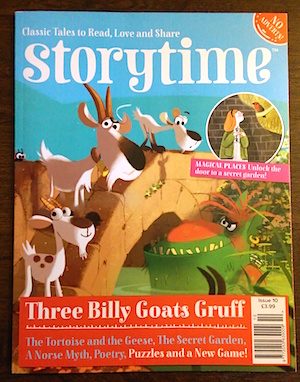 Storytime magazine publishers have generously agreed to provide a lucky winner with a 12 month subscription for their school!
Storytime magazine publishers have generously agreed to provide a lucky winner with a 12 month subscription for their school!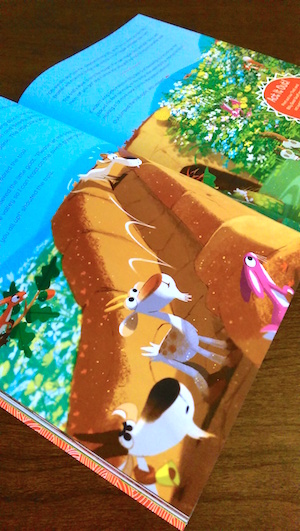 Aimed at Early Years to KS2, stories are in abundance and each has an simple optional exercise to follow, along with other facts associated with the story. When reading through, I noticed the distinct lack of adverts – no unnecessary distractions!
Aimed at Early Years to KS2, stories are in abundance and each has an simple optional exercise to follow, along with other facts associated with the story. When reading through, I noticed the distinct lack of adverts – no unnecessary distractions!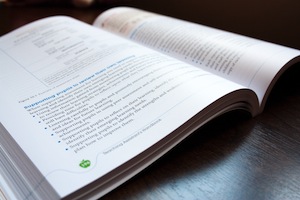 We would like to know more about TA/SEN related books you have read, which have helped developed your knowledge or improved skills in the classroom. A number of great titles have been recommended to us since this website was launched and we would like to review the most popular.
We would like to know more about TA/SEN related books you have read, which have helped developed your knowledge or improved skills in the classroom. A number of great titles have been recommended to us since this website was launched and we would like to review the most popular.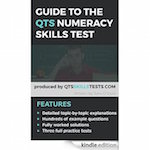 Tom O’Toole, author of Guide to the QTS Numeracy Skills Test, is offering his new ebook
Tom O’Toole, author of Guide to the QTS Numeracy Skills Test, is offering his new ebook  Teachers’ Pocketbooks have generously provided TA Focus with 10 copies of The Teaching Assistant’s Pocketbook by Dot Constable.
Teachers’ Pocketbooks have generously provided TA Focus with 10 copies of The Teaching Assistant’s Pocketbook by Dot Constable.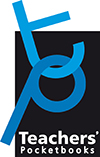 intended to aid classroom teachers and support staff with practical information, ideas and expertise on a number of topics.
intended to aid classroom teachers and support staff with practical information, ideas and expertise on a number of topics.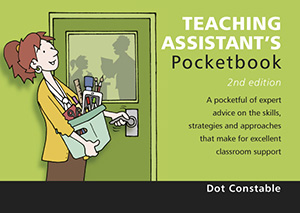
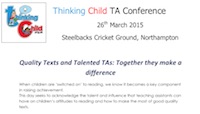

 I am a Senior Lecturer in the School of Education at the University of Northampton. I’m also Admissions Tutor for the Foundation Degree Learning and Teaching so I meet and talk to many volunteers, Teaching Assistants and HLTAs who want to develop their roles in school and their own education. I also teach on the FD and BA courses and I’ve enjoyed seeing our students go to achieve their ambitions personally and professionally.
I am a Senior Lecturer in the School of Education at the University of Northampton. I’m also Admissions Tutor for the Foundation Degree Learning and Teaching so I meet and talk to many volunteers, Teaching Assistants and HLTAs who want to develop their roles in school and their own education. I also teach on the FD and BA courses and I’ve enjoyed seeing our students go to achieve their ambitions personally and professionally.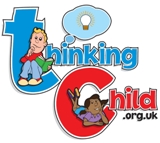

 Again – cheap and simple – make a ‘Wonder Box’ and give children slips of paper to write on.
Again – cheap and simple – make a ‘Wonder Box’ and give children slips of paper to write on. They post their slips of paper into the box and at a later time they go through their questions with an adult – who can help them strengthen their questioning skills and ultimately, the comprehension of the story. The Wonder Box can also be an outdoor version – even more motivational for some children.
They post their slips of paper into the box and at a later time they go through their questions with an adult – who can help them strengthen their questioning skills and ultimately, the comprehension of the story. The Wonder Box can also be an outdoor version – even more motivational for some children.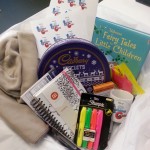 Thinking Child are celebrating all TAs in the lead up to UNISON’s ‘Stars in our Schools Day’ later this month. They have put together a wonderful prize for a special Teaching Assistant and want YOU to nominate. Simply give the name of your chosen TA, their school and the reason why you think they deserve to be the ‘TA of the Year’.
Thinking Child are celebrating all TAs in the lead up to UNISON’s ‘Stars in our Schools Day’ later this month. They have put together a wonderful prize for a special Teaching Assistant and want YOU to nominate. Simply give the name of your chosen TA, their school and the reason why you think they deserve to be the ‘TA of the Year’.